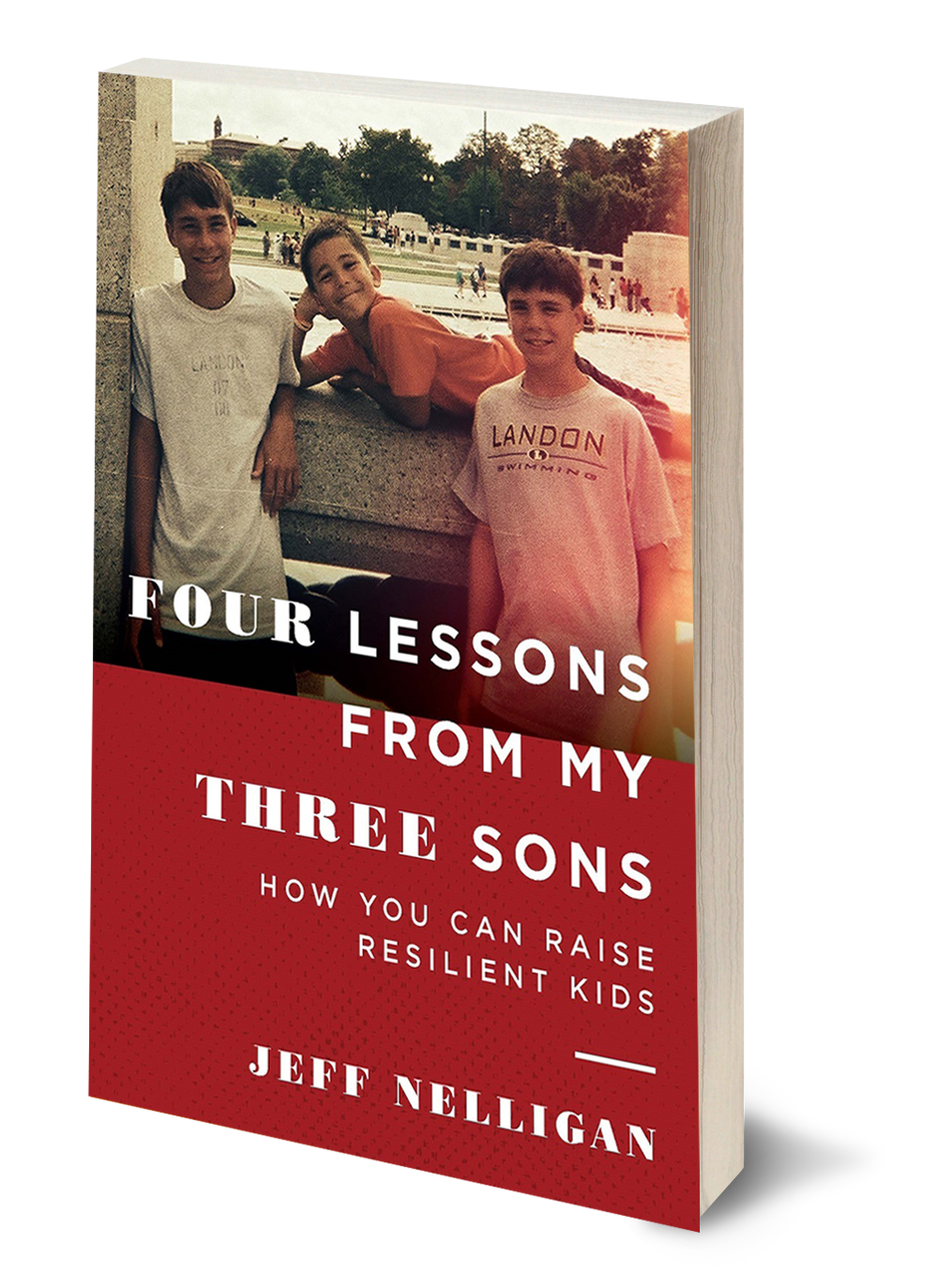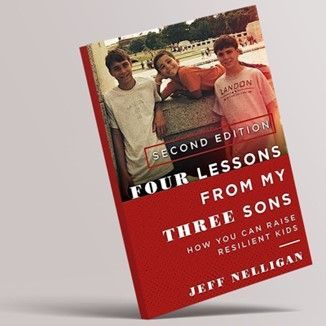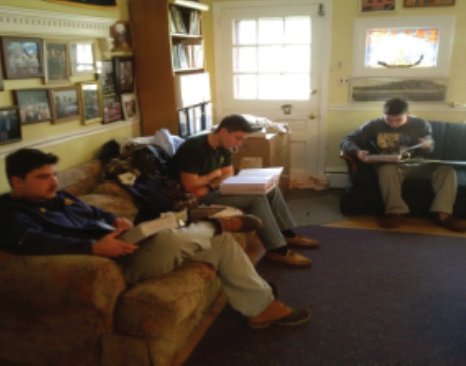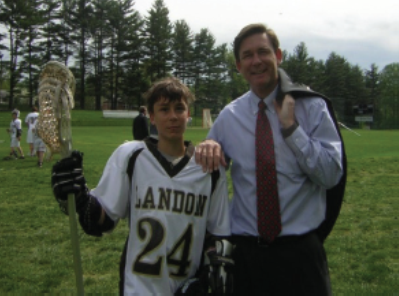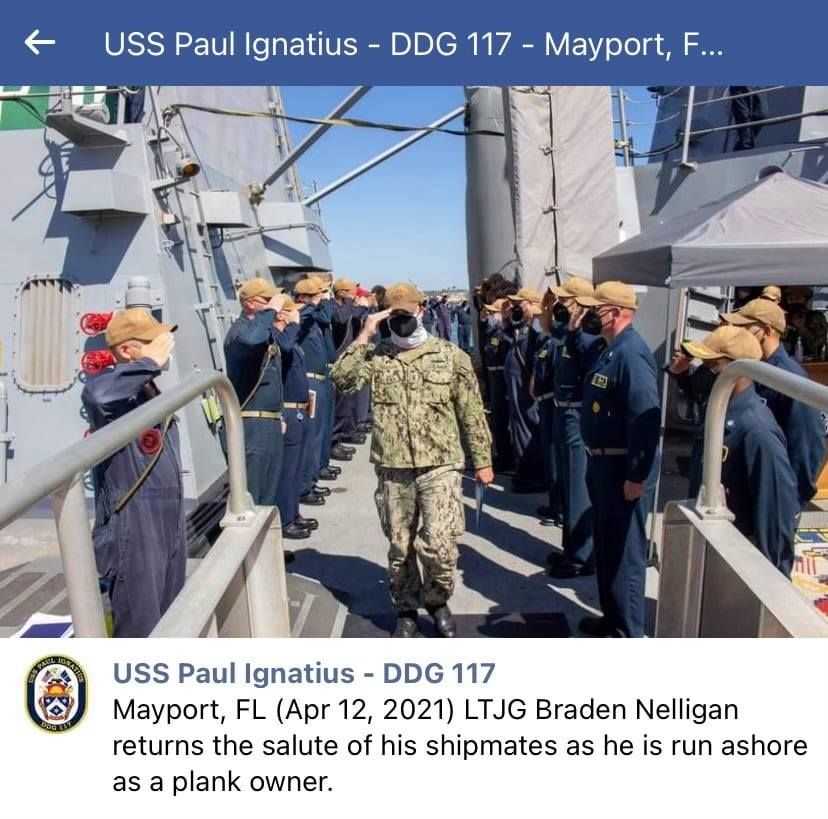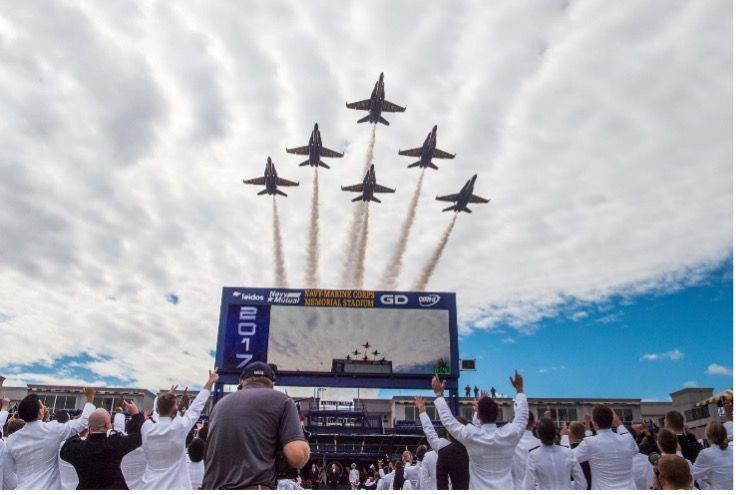My Family and the All-Volunteer Force at 50
What it takes
The Baltimore Sun / Commentary
July 31, 2023
Plebe Summer is underway at the U.S. Naval Academy, where 1,184 young men and women grind through the second week of their “college” experience, complete with obstacle courses, firearms and fully-clothed plunges into the Chesapeake Bay.
These determined young people represent one element of the All-Volunteer Force (AVF), which marked its 50th anniversary this year after military conscription ended in 1973. It is one of the most remarkable institutions this nation has ever produced. I should know: My three sons and I are each products of the AVF; we have a combined 34 years of service and counting, from both officer and enlisted ranks.
My middle son endured his Plebe Summer nine years ago and now serves as an engineering officer on a guided missile destroyer in the Pacific. My youngest made it through West Point’s notorious “Beast Barracks” (the U.S. Military Academy’s equivalent of Plebe Summer) and graduated with the U.S. Military Academy class of 2022. My eldest attended Navy Officer Candidate School (OCS) in Newport, Rhode Island, and has deployed to South Korea and on a Pacific tour with an aircraft carrier. And 37 years ago, I attended Basic Combat Training at Fort Benning, Georgia, followed by 14 years in the U.S. Army Reserve and National Guard, ingloriously rising to the rank of corporal.
Eleven million men and women have served in the AVF since 1973, providing the muscle and minds and sweat and blood for three major wars and numerous overseas operations all over the globe. For this, most Americans will summon the reflexive “Thank you for your service.” The fact is the AVF gives most Americans the freedom to be rather indifferent to their military, shifting the burden of the barracks and skies and seas — true public service — to a smaller, self-selected cohort of citizens.
Such service has at its core, the basic values vital to a functioning civic society — personal discipline, teamwork and most of all, accountability. All these behaviors are drilled into every would-be officer and enlisted person from day one.
Boot camp is a nonstop series of physical and mental testing designed to force individuals to confront and overcome adversity. Participants, who come from every corner of America and reflect its demographics, build loyalty to their comrades, their service and their nation. The 62nd U.S. Naval Academy superintendent, Admiral Walter Carter, said it best: “This training, this place, is all about pressure. Constant, unceasing pressure — which leads to failure, then recovery. And resilience.” Or as my Fort Benning drill sergeant put it: “We’re gonna break you down and build you up so you’re even better!”
This training and this environment have measurable benefits. A RAND Corporation study notes that veterans are distinct in “valuable nontechnical skills, such as leadership, decision making, being dependable, and attention to detail.” The vast majority of volunteers emerge from the crucible of the service resolute and with a self-awareness that transfers to personal conduct and to the high esteem in which they are held in American civic life.
It’s no secret the volunteer force today faces challenges, specifically recruiting shortages in the Army, Navy, and Air Force, with a strong job market the foremost explanation (though retention numbers are outstanding, with every service exceeding 100% of their goals in 2022).
But the chief reason for recruiting woes? 77 percent of military age youths (17-24) cannot meet basic requirements for service eligibility because of educational shortcomings, drug and disciplinary records, and most of all health problems, mostly obesity.
This is appalling fact should alarm every American. How can it be that nearly eight of ten young men are unqualified for national service? Which prompts another question: How will this cohort find a productive long-term path in the public and private sector? What employers in the trades, retail or white-collar world are clamoring to hire individuals who are so deficient in meeting the basic requirements for sustained civic and economic life?
My middle son (he of Plebe summer) soon assumes his next duty station as a senior officer at a regional recruiting command. He knows full well the current trials of the volunteer world; nonetheless, he’s surprisingly optimistic: “My guys and I will find them.” How does he come to this sunny outlook? Because since he was 17 years of age he has been in environments where obstacles, major and minor, are a part of everyday life, where he has been part of a team that assesses, adapts and advances forward and doesn’t give up. For him, that means selling the military and all of its tangible and intangible benefits.
Recall the mention of those 1,184 plebes sweating it out right now. They represent just eight percent of the more than 14,700 youths who applied to the USNA class of 2027. Certainly the recruiting challenges exist today. But the AVF will endure; there will always be enough sharp and rugged young men and women out there to fill the ranks.
_____________________________
Jeff Nelligan works at FDA and is the author of Four Lessons From My Three Sons: How You Can Raise Resilient Kids
SITE TOPICS
Parenting, Dads and sons, raising boys, resilient kids, child psychology, self-help, personal growth, youth athletics, U.S. Naval Academy, Williams College, West Point.
Privacy Policy
Privacy Policy

